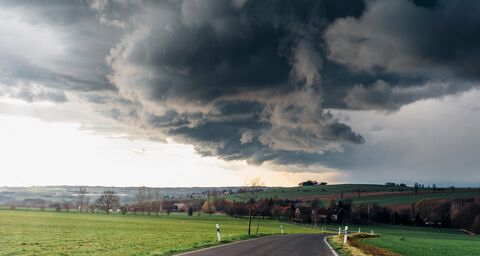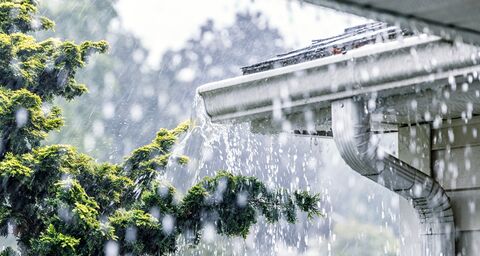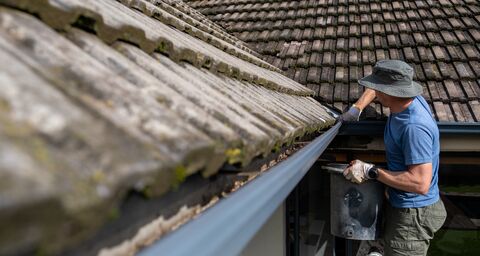
Security deposit account or rental guarantee insurance – comparisons, advantages, recommendations
You’ve found your dream apartment at last! But now you need to put down a security deposit for it. What this means is that you will deposit a specific amount of money into an escrow account. Or you can see whether rental guarantee insurance is a better option for you than a security deposit.
A security deposit, also known as a security deposit account, is a financial guarantee which tenants must pay to their landlord when they sign the lease. This deposit is a guarantee that covers any repairs that need to be made to the apartment or any rent you still owe after you move out. It serves as a cushion for any potential financial losses that the landlord might face.Your landlord may ask you to make a security deposit, but they are not obligated to do so. If the security deposit is specified in the rental agreement, the tenant is required to pay it when they sign the agreement. As a prospective tenant, you have various options available to you to satisfy this requirement.
Your options: Security deposit account or rental guarantee insurance
There are different ways for you to put down a security deposit. A security deposit account and rental guarantee insurance are the two most common options.
Security deposit account
A security deposit, or a security deposit account, is the traditional form of security used to rent an apartment. With this option, you place the agreed amount into a special escrow account. The money remains in this account for the entire term of your lease and serves as a financial guarantee for your landlord. When your lease ends and there is no damage or unpaid rent, then you will get your security deposit back. If the landlord must pay for expenses, such as repairs to the apartment, they can use some or all of the security deposit to cover these expenses.However, they can only do this with your permission, with a legally valid default summons or a court order.
Rental guarantee insurance
Rental guarantee insurance is a new alternative to a security deposit. Instead of depositing your money into an account, you take out a policy that covers the amount of your security deposit. This insurance will pay your landlord if you damage the property or if you fail to pay your rent. With this policy, you pay regular premiums to the insurance company instead of depositing a large sum all at once.Rental guarantee insurance is not liability insurance – the insurance is only an advance payment, and you will be required to repay the claim amount later. But be aware that since not all landlords accept rental guarantee insurance, you should talk to your landlord first before you take out a policy.
Comparing a security deposit account and rental guarantee insurance
Whether you decide to go with a security deposit or rental guarantee insurance will have an impact on your financial planning. The main difference between these two options is:
Costs and Fees
- Security deposit account: The fees for these accounts are generally limited to any account opening fees and regular account maintenance fees. The entire amount of your security deposit is refundable as long as you do not owe any rent and no repairs are needed.
- Rental guarantee insurance: With rental guarantee insurance, you will make regular premium payments that vary from insurer to insurer and will depend on the level of coverage you choose.
Flexibility and Availability
- Security deposit account: Security deposits are very common. This is the standard method that many landlords use.
- Rental guarantee insurance: Rental guarantee insurance often gives you greater flexibility in terms of the amount of your security deposit. Prospective tenants pay a monthly premium instead of one large security deposit all at once. Not having to make this large payment up front means that you may be able to rent a property that you would otherwise not be able to afford.
Liquidity
- Security deposit account: A security deposit account may provide security, but it can present a financial challenge for you since you won’t have access to your money because it is locked away in an account.
- Rental guarantee insurance: Rental guarantee insurance protects your landlord against financial loss. It also gives you the option of using the security deposit for other expenses, such as moving costs.
Who pays for the security deposit account?
As with all accounts, most banks charge a fee for a security deposit account. Here the question is: Who has to pay? The landlord is the one who can request a security deposit and therefore also a security deposit account. But on the other hand, the account will be in your name, so you can profit from any interest the account bears. In general, the tenant is responsible for paying the account opening fees and maintenance fees for a security deposit account. The tenant is free to use any interest that the account earns as long as there is nothing to the contrary in the lease agreement.
Conclusion
Rental guarantee insurance lets you make convenient monthly payments rather than one huge payment all at once. This gives you the financial freedom to use your money for other things.
However, security deposits are much more commonly used and are often preferred by landlords. Rental guarantee insurance is not always accepted by landlords. This is why it’s important for you to talk to your landlord about it before you sign your lease.






